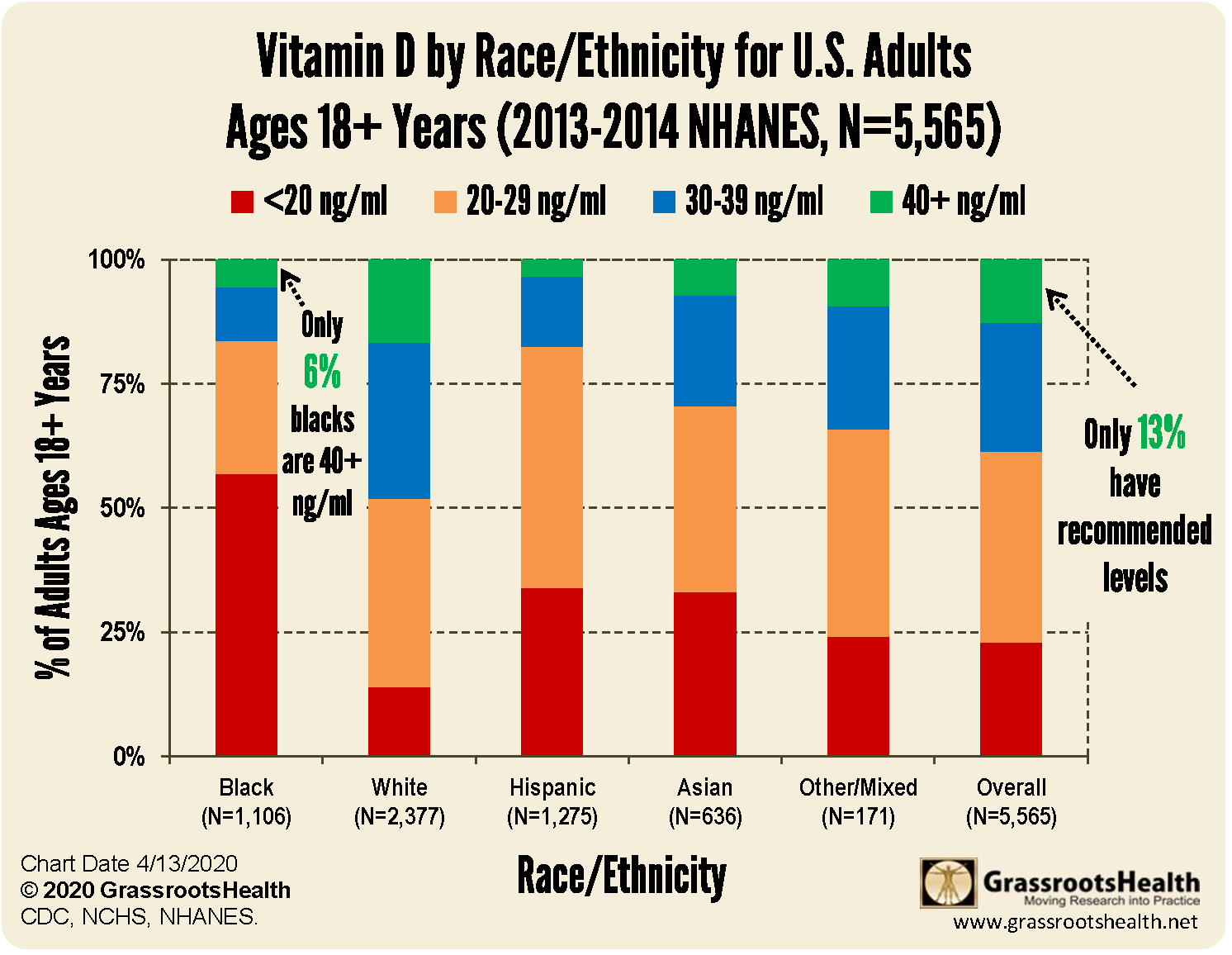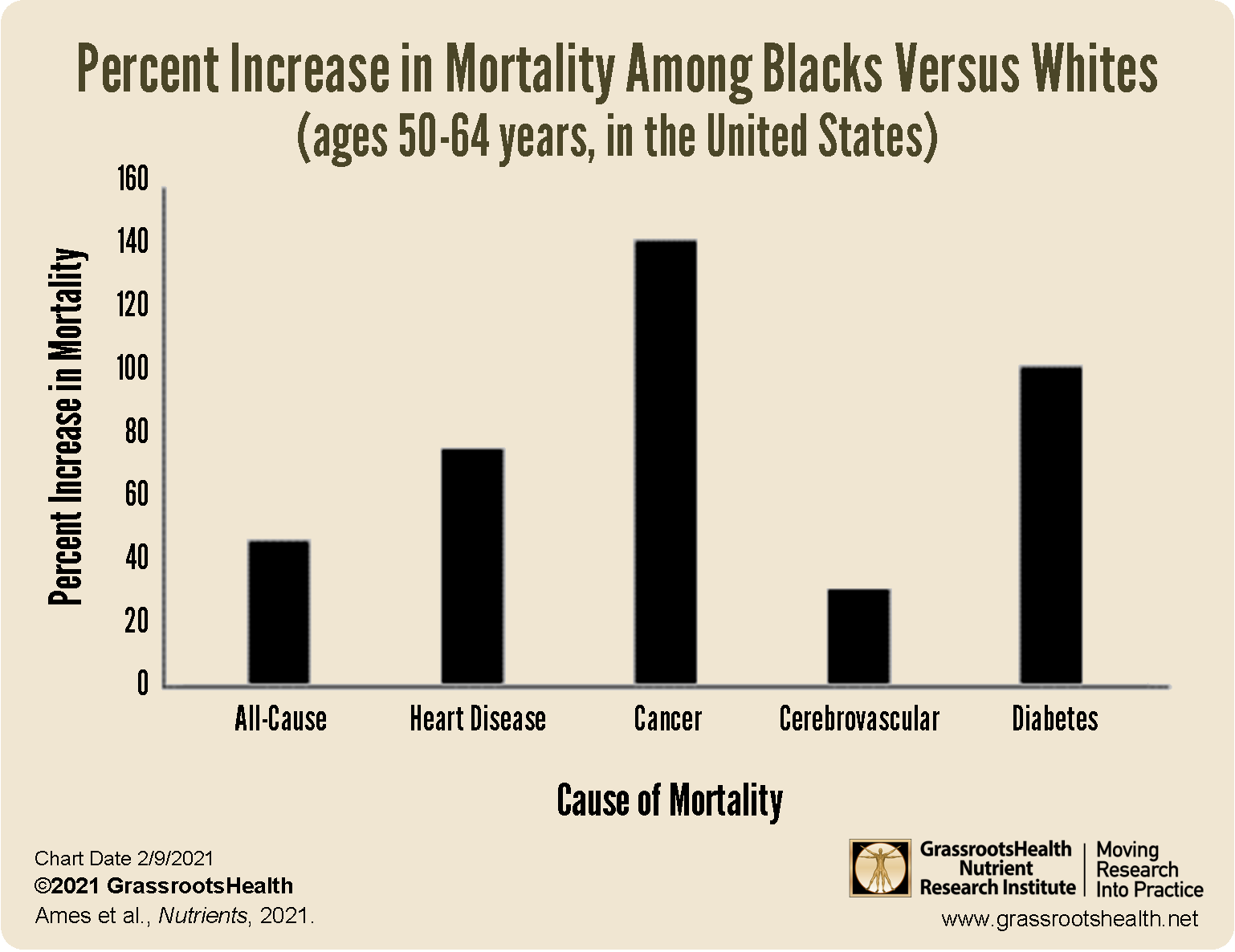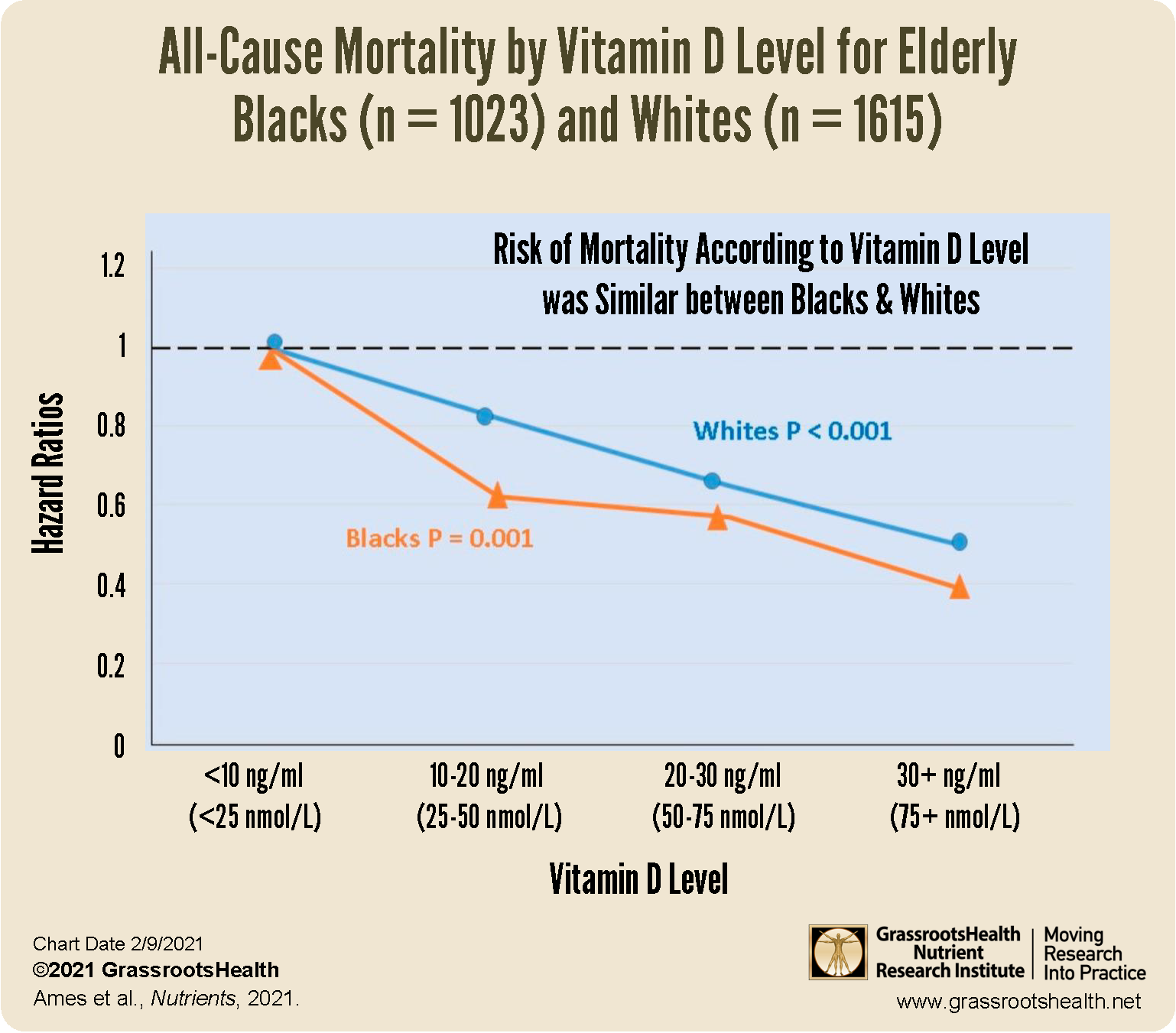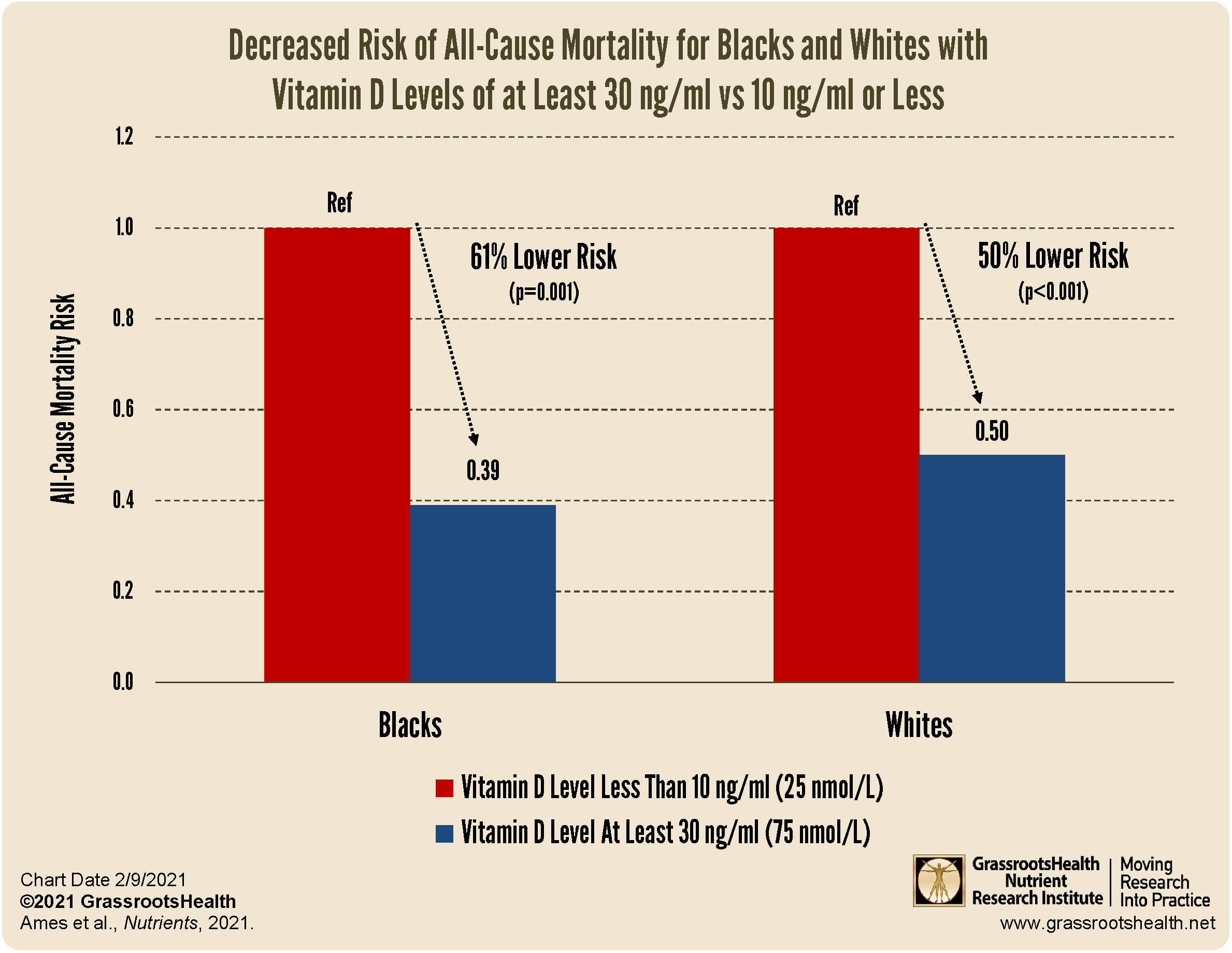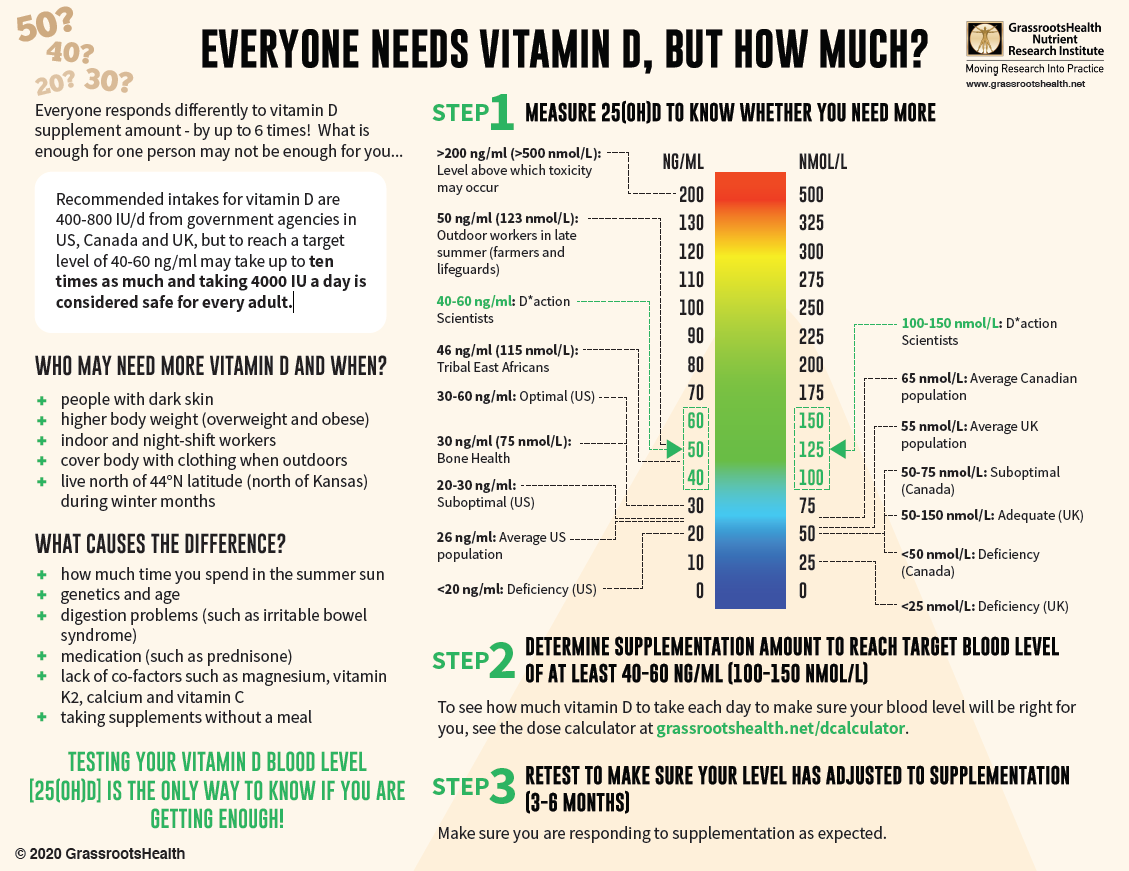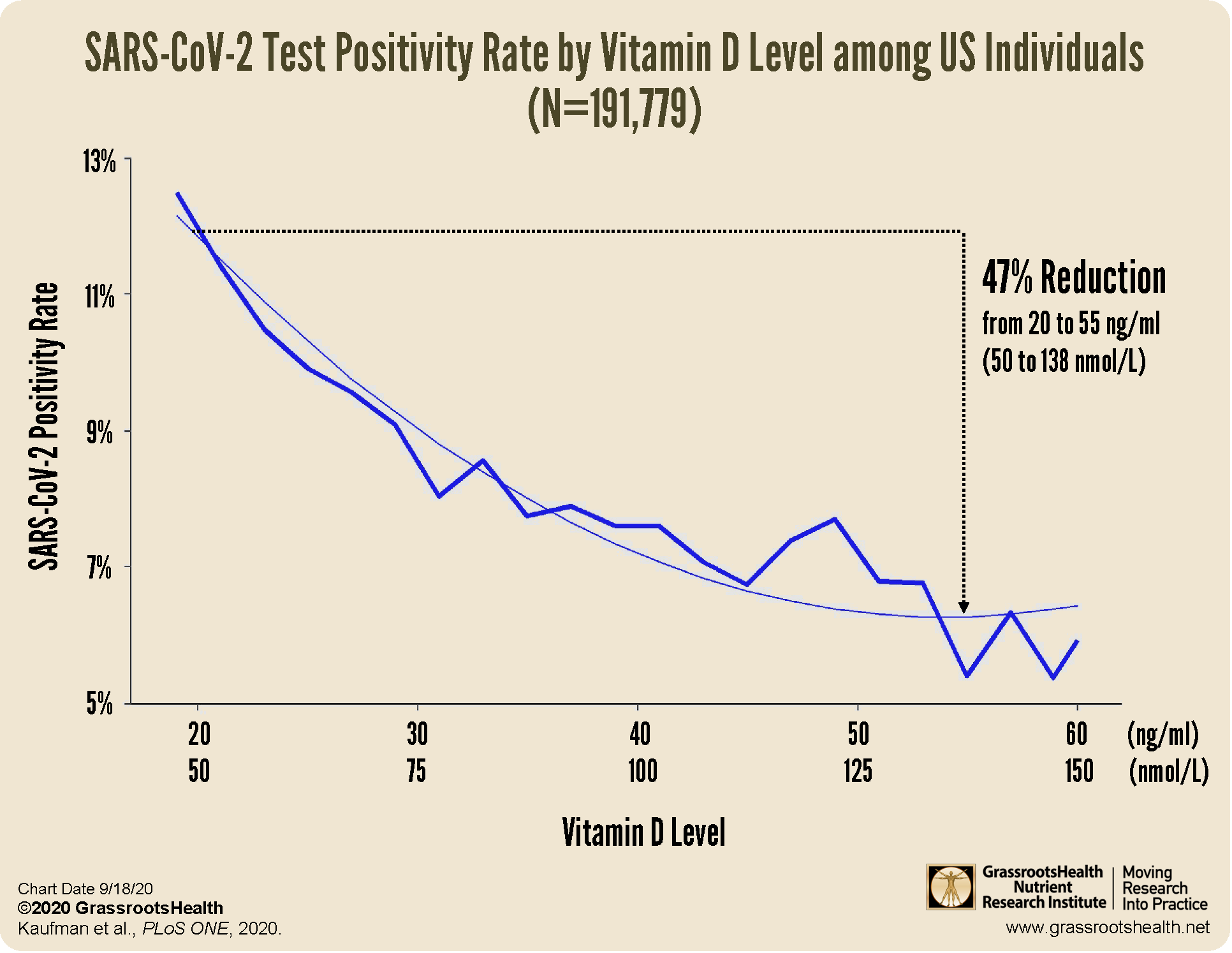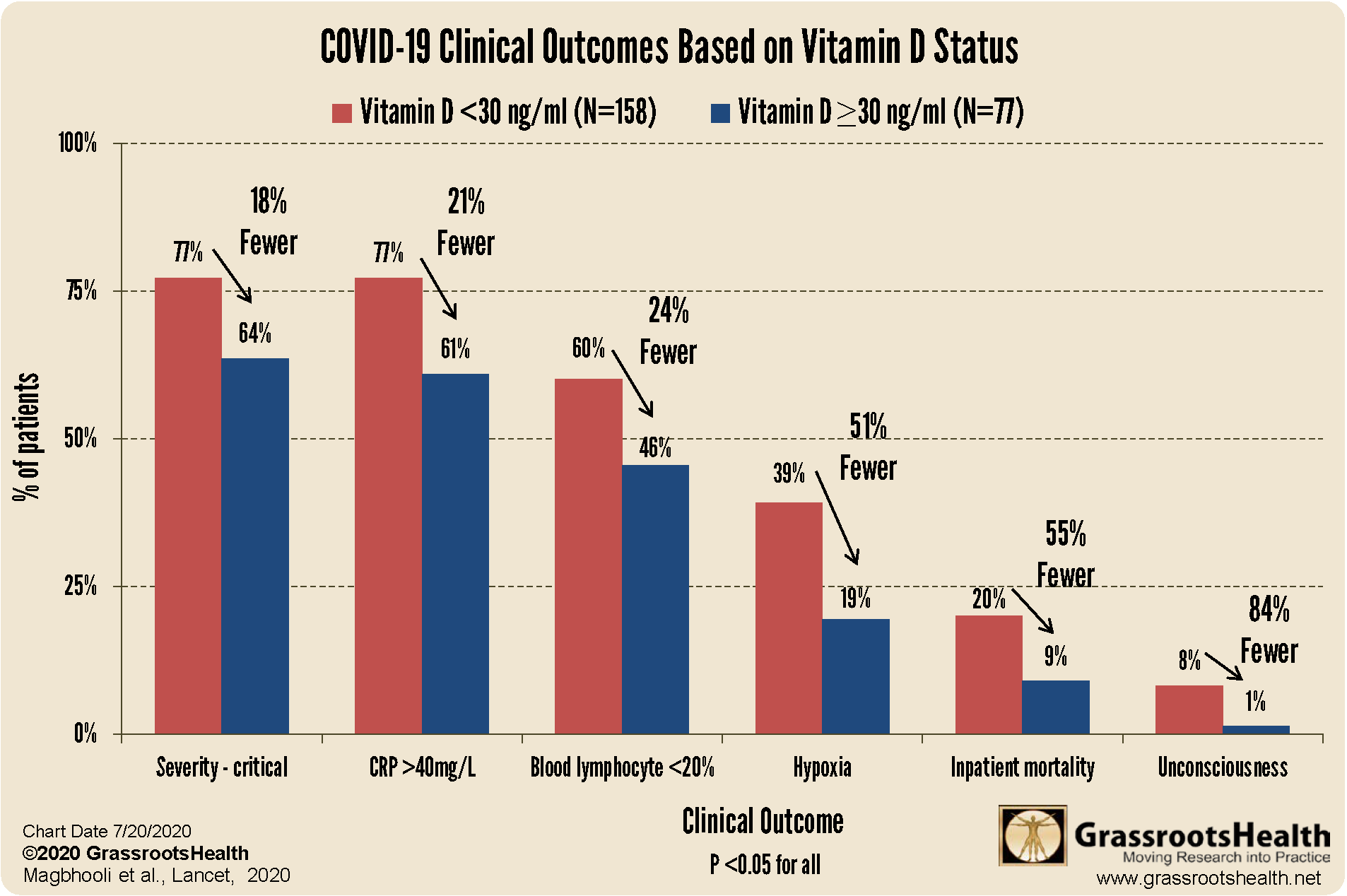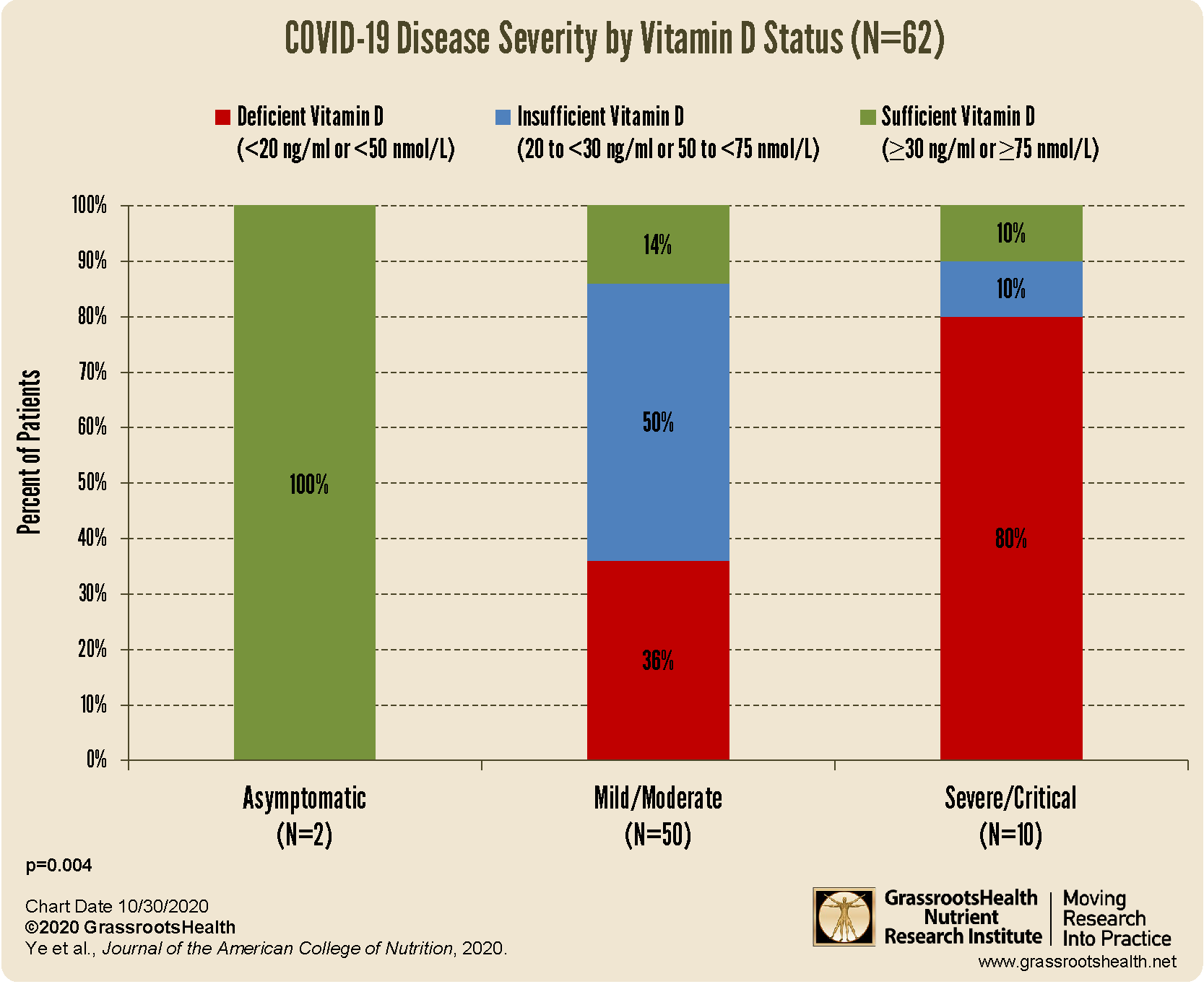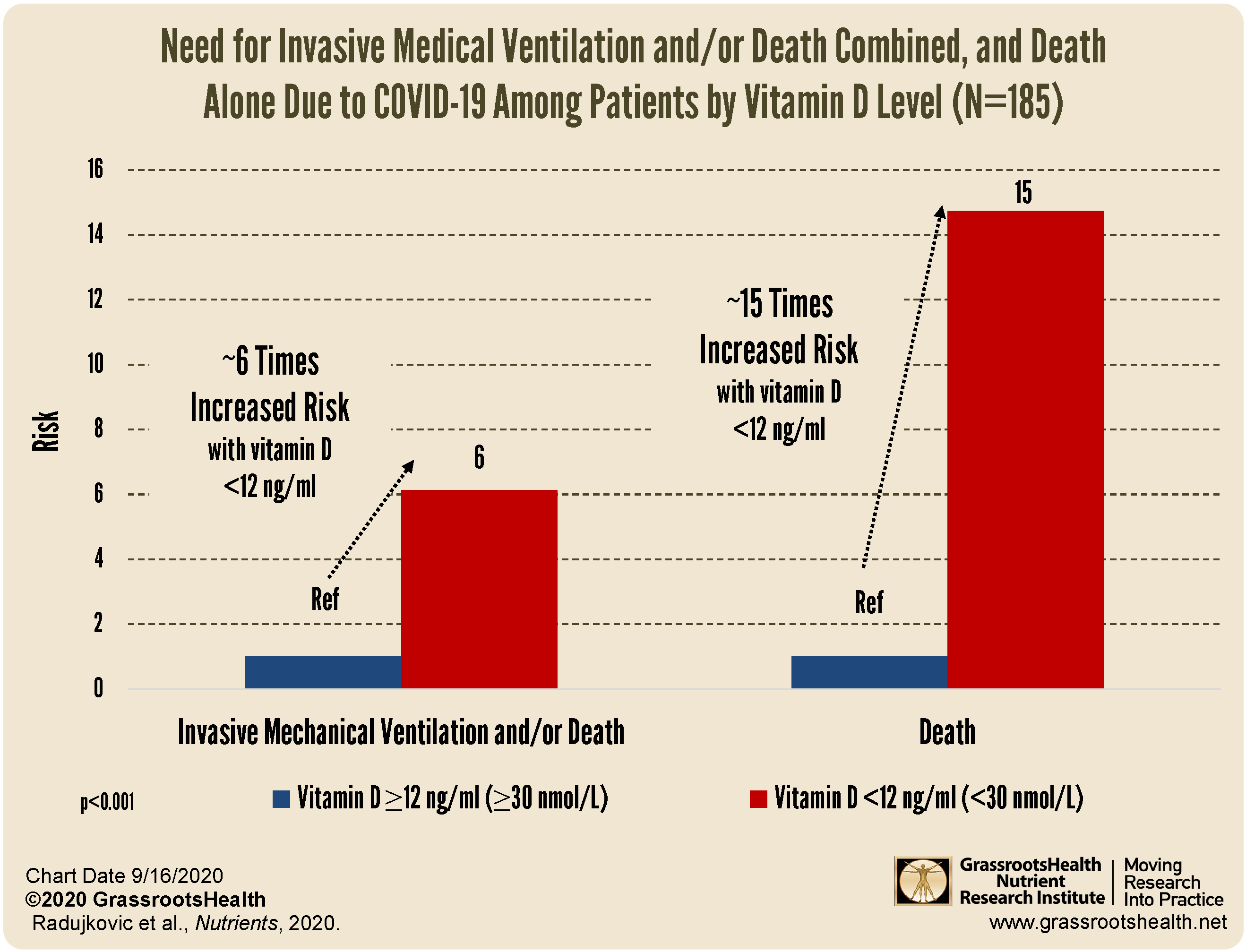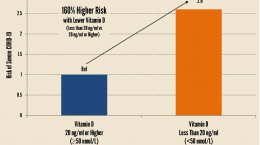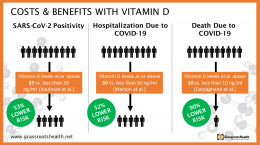Published on February 10, 2021
African Americans have a 15-20 fold higher prevalence of severe vitamin D deficiency, which may account for a majority of their increased health and mortality risks
 Regardless of skin color, vitamin D deficiency increases the risk of many diseases, from cancer and heart disease to diabetes and autoimmune disease, and as we have seen more recently, severe cases of and death from COVID-19.
Regardless of skin color, vitamin D deficiency increases the risk of many diseases, from cancer and heart disease to diabetes and autoimmune disease, and as we have seen more recently, severe cases of and death from COVID-19.
These diseases associated with vitamin D deficiency are also the same ones seen more prevalently among blacks. This makes sense with the incredibly high incidence of vitamin D deficiency and insufficiency among blacks and other people with darker skin (who need more sun exposure than people with lighter skin to make the same amount of vitamin D).
Blacks are the most deficient in vitamin D
The National Health and Nutrition Examination Survey (NHANES) measures and analyzes vitamin D levels in the United States over many years. The chart below shows data from 2013-2014 which clearly illustrates the higher rates of vitamin D deficiency among blacks compared to all other ethnicities, with approximately 80% having levels below 30 ng/ml and 95% below 40 ng/ml.
Blacks also have much Higher Mortality Rates from diseases associated with Vitamin D Deficiency
With more blacks having vitamin D deficiency compared to whites, it should be expected to see more vitamin D deficiency related health conditions, such as cancer, diabetes, heart disease, and others – and mortality due to these conditions – among blacks compared to whites. The chart below illustrates the percent INCREASE in mortality rates for blacks compared to whites.
Could Increasing Vitamin D Levels among Blacks Lessen the Difference?
A review by Ames et al. titled Does the High Prevalence of Vitamin D Deficiency in African Americans Contribute to Health Disparities? examined the existing research and showed that there is strong evidence that getting vitamin D levels among blacks up to at least 30-40 ng/ml (75-100 nmol/L) may eliminate much of the health disparities seen between blacks and whites. In order to see what effect vitamin D levels had on the mortality rates of blacks compared to whites, the authors created the chart below. When breaking the mortality risk down by vitamin D level, you can see that the risk of mortality for blacks is similar to the risk of mortality for whites for each category of vitamin D serum level! This indicates that correcting vitamin D deficiency and insufficiency among blacks could close the gap in mortality rates between blacks and whites.
Regardless of Skin Color, Correcting Vitamin D Deficiency Decreases Mortality Risk
Based on the above, the risk of mortality is similar between blacks and whites when mortality is grouped by vitamin D level. Even though more blacks may be in the lower vitamin D categories, with more experiencing higher rates of all-cause mortality, their risk of mortality decreases in the same manner as whites when vitamin D levels increase. As you can see in the chart below, there is a 61% lower risk of mortality for blacks and a 50% lower risk of mortality for whites when vitamin D levels were increased from less than 10 ng/ml (25 nmol/L) to at 30 ng/ml (75 nmol/L) or above.
One simple change can make a BIG difference!
The authors of this review conclude
“…no reason exists to delay addressing vitamin D deficiency among populations with high prevalence of deficiency such as African Americans. The potential benefits promise to be large, and much evidence indicates that the risks of supplementation up to 4000 IU per day vitamin D are minimal.”
It should be clear that vitamin D alone has the potential to make a big difference in health outcomes, for black individuals especially. What are we waiting for?
Individuals who are black, white, or of any other skin color may greatly benefit their health by checking their vitamin D level and taking the steps necessary to get their vitamin D level up to the scientists’ recommended 40-60 ng/ml (100-150 nmol/L). Take action now!
Are You Getting Enough Vitamin D?
Everyone needs vitamin D! Below is a guide for how much you might need, and who may need more. Your levels can be tested safely at home – order your home test kit today.
By joining the GrassrootsHealth projects, you are not only contributing valuable information to our study, but you are also gaining knowledge about how you could improve your own health through measuring and tracking your nutrient status, and educating yourself on how to improve it. Do you know what your status of vitamin D, omega-3s, and other essential nutrients is? Could your levels be improved? Test now to find out!
 We now have a NEW GIFTING SERVICE that allows you to quickly send ‘Gift Cards’ to friends, family and coworkers who you consider might need immediate access to testing, and to Claim the Joy of Your Health TODAY. Give the gift today!
We now have a NEW GIFTING SERVICE that allows you to quickly send ‘Gift Cards’ to friends, family and coworkers who you consider might need immediate access to testing, and to Claim the Joy of Your Health TODAY. Give the gift today!
What does the Research Say about Vitamin D & COVID-19?
It’s TIME to start saving lives! If you can help PREVENT the majority of the death, it’s time! What’s it costing you/us not to take action NOW?
There is much published research that supports a clear link between vitamin D and COVID-19 showing that higher vitamin D levels are related to:
a decreased risk of testing positive for COVID-19
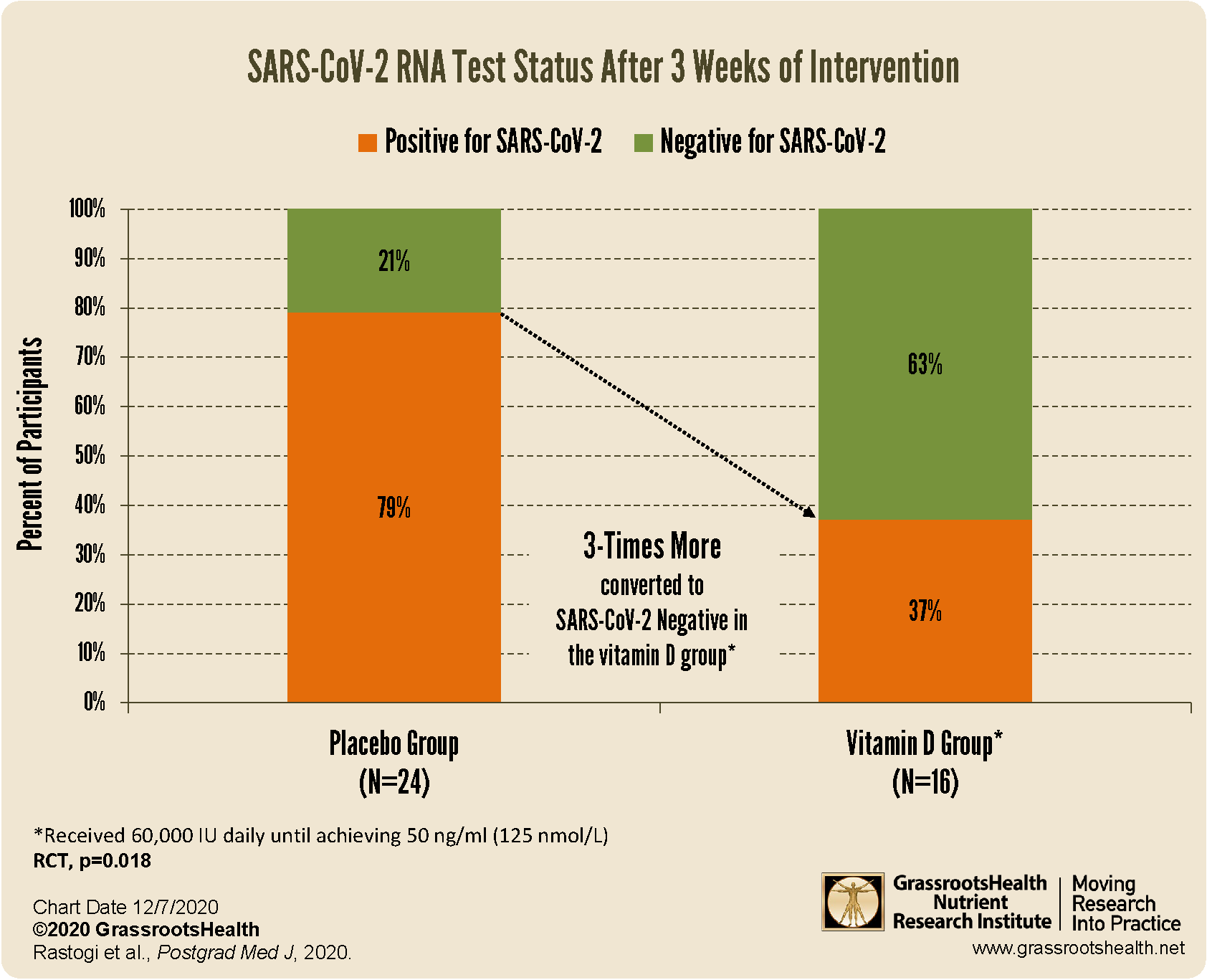 increased viral SARS-CoV-2 RNA clearance
increased viral SARS-CoV-2 RNA clearance
better clinical outcomes among patients with COVID-19
decreased risk of death due to COVID-19
Be sure to educate yourself on the benefits and importance of vitamin D for immune health, and take steps to ensure you and your loved ones are getting enough.
You can review all of the COVID-19 and immune health information we have shared on this page.


